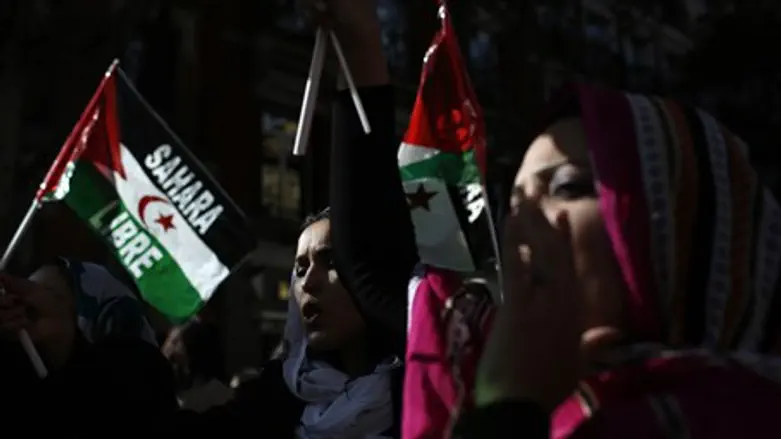
Tensions are boiling over in the Western Sahara, a region Morocco has occupied since 1976, and local Sahrawi groups warn that if the UN pulls out its troops from the region in a concession to the Moroccan government, war will likely follow.
Morocco has occupied the region since it was handed to its troops by Spain, when Madrid ended its colony there. The Sahrawi Arab Democratic Republic (SADR) holds a government-in-exile in Algeria, arguing for its rights to rule over the region, and the Algerian-backed Polisario Front has been fighting for independence in the disputed territory.
If the UN ends its peacekeeping mission in the vast and mineral-rich Western Sahara that would be "the shortest way to the resumption of war," warned Polisario Front's UN representative Ahmed Boukhari, as reported by Associated Press on Friday.
“If there is no mission, there is a vacuum and an invitation to war," he warned, calling on the UN Security Council to maintain the UN presence in the region.
Morocco on Thursday ordered the UN to evacuate its 84 international peacekeepers within three days from Western Sahara, and announced Morocco is cancelling $3 million in funding for the UN operation.
The Moroccan backlash, which included mass protests on Sunday, was sparked when UN Secretary-General Ban Ki-Moon used the term "occupation" in describing Western Sahara's status.
He made the comments while visiting Algerian refugee camps for Sahrawis, the native inhabitants of Western Sahara.
UN division
In response to Ban, Moroccan Foreign Minister Salaheddine Mezouar said in a news conference on Thursday that "like all the countries in the world, we do not accept injustice or insult wherever it comes from."
The UN peacekeeping mission in Western Sahara was established following a UN brokered ceasefire between Morocco and the Polisario Front in 1991.
In response to Morocco's threats, the UN Security Council on Thursday held a meeting to hear from UN political chief Jeffrey Feltman about the developments.
Angola's Ambassador to the UN Ismael Gaspar Martins, who is currently the president of the council, indicated there are deep divisions in the Security Council. He said it was decided that the 15 members should talk to Morocco "to make sure that the situation is stabilized."
UN diplomats revealed there is a total lack of consensus in the council, with France, Egypt, Senegal, Spain and Japan supporting Morocco.